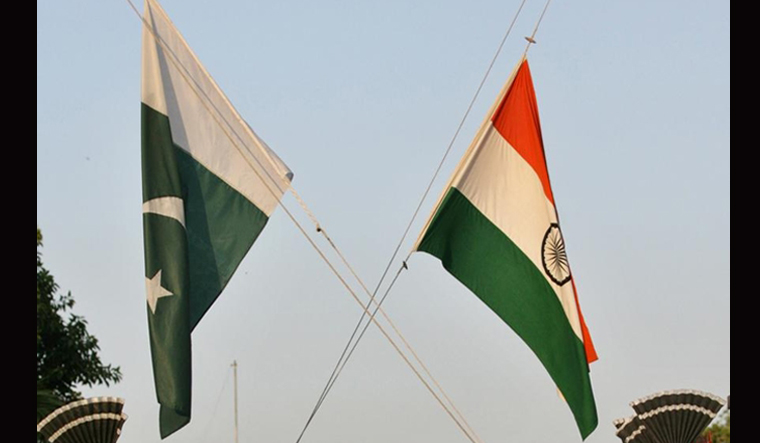Is it the calm before the storm? Or is it a glimmer of hope? Any softening of stand in the India Pakistan relations, which usually oscillate between two extremes, gets viewed through these two prisms. But can the official end to the rather ugly diplomatic spat between the two neighbours—with diplomats in either countries accusing each other of harassment—be viewed through another lens? The so-called General Bajwa's doctrine.
India’s High Commissioner to Pakistan Ajay Bisaria met Pakistani National Security Advisor Lt. General Naseer Khan Janjua on Tuesday. “Constructive discussions took place on improving bilateral relations,'' sources revealed.
In the past few weeks, there has been a tiny step forward, perhaps a return to a semblance of civility, although may be not diplomatically. Pakistan High Commissioner Sohail Mahmood was granted permission to travel to Ajmer to the dargah to participate in the Urs (death anniversary) of Khwaja Moinuddin Chishti. Earlier, permission to travel outside Delhi had been denied to Pakistani officials. Across the border, the Indian high commissioner and the military attache were invited to attend the military parade on Pakistan Day—a practice that had been stopped for over a decade. The 114th meeting of the Permanent Indus Commission (PIC) was also held last week.
The views of Pakistan's Army Chief General Qamar Javed Bajwa do count for a lot. And Bajwa is not a hawk. He is believed to be “for peace” with India. Could this softening by Pakistan be credited to Bajwa doctrine?
Interestingly, this doctrine doesn't exist. Not officially. It hasn't been spelt out anywhere. Yet, it has become the topic of heated debate. So much so that the Inter Services Public Services (ISPR) has been forced to issue a statement to squash any kind of speculation. In its usual officialese, ISPR denied its existence as well as confirmed that it does exist. “If there exists any (such) doctrine…it is only related to the security of Pakistan,” said the spokesperson.
The origin of the doctrine seems to be an off-the-record interaction of Bajwa, where he candidly expressed his views on everything from the tussle between the judiciary and the civil government in Pakistan to Kashmir and India, and even China. This interaction was then spun into what has now been christened as the Bajwa doctrine.
“This is a tactical attempt to cool temperatures on the border,'' claimed Jayadev Ranade, a security and intelligence expert. “I don't think you can see anything beyond a tactical measure.''


